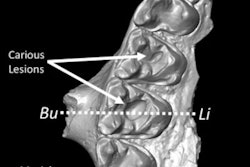
Children's dislike of raw cruciferous vegetables, such as broccoli and cabbage, may be connected to the salivary production of high levels of sulfur volatiles, according to research published on September 22 in the Journal of Agricultural and Food Chemistry.
Furthermore, children and their parents produced similar levels of the unpleasant sulfurous odors, indicating they may share oral microbiomes, the authors wrote.
Cruciferous or Brassica vegetables contain the compound S-methyl-L-cysteine sulfoxide, which produces potent, sulfurous odors when triggered by an enzyme produced by bacteria in some people's oral microbiomes. Previous studies have shown that adults have different levels of this enzyme in their saliva. However, it has been unclear whether children also have different levels of the enzyme and if it affects their food preferences.
To identify the primary odor-active compounds in raw and steamed cauliflower and broccoli, the researchers used gas chromatography-olfactometry-mass spectrometry. Next, they asked 98 pairs of parents and children (ages 6 to 8) to rate the main odor compounds. Dimethyl trisulfide was the least liked odor by children and adults. The researchers then mixed raw cauliflower powder with saliva samples and analyzed the volatile compounds produced.
Most often, children and their parents had similar levels of sulfur volatile production, which is likely explained by similar microbiomes. Children whose saliva produced high amounts of sulfur volatiles disliked raw Brassica vegetables the most. However, this was not the case in adults, indicating they may come to tolerate the taste over time.



















